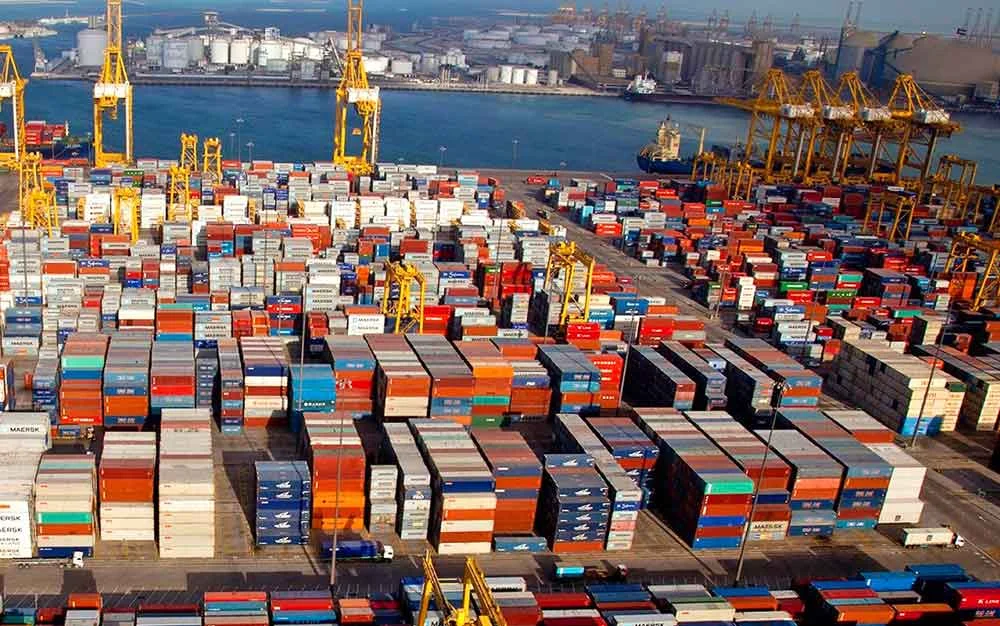How Dubai commands key travel and trade routes
The Gulf emirate is ideally placed geographically and economically for 21st-century growth, with DMCC (Dubai Multi Commodities Centre) playing a central role.
Trade routes are the stuff of legend, bringing exotic goods, wealth and new ideas across the globe. Historically, the Silk Road linked the major ancient civilisations of China and the Roman Empire; the Spice Route maritime passages went from the East Indies to Europe; and frankincense and myrrh were transported on the Incense Route from the Arabian Peninsula to the Mediterranean.
Beads were traded along the Amber Route between the Baltic and Egypt; the Tea Route ran from China through Tibet to India; and the Salt Route went from Ostia, near Rome, across Italy to the Adriatic coast.
Rich history: trade lines such as the Spice Route are the stuff of legend CREDIT: GETTY
Now China’s Silk Road Economic Belt and the 21st-Century Maritime Silk Road initiative, otherwise known as the Belt and Road, promise to increase connectivity and co-operation between East and West.
Covering 68 countries accounting for two-thirds of the globe’s population and 40pc of its gross domestic product, the Belt and Road is one of the largest infrastructure and investment projects in history, addressing an infrastructure gap that has potential to accelerate economic growth from Asia-Pacific to Central and Eastern Europe.
A report published last year by the World Pensions Council estimated that Asia, excluding China, requires up to $900bn of infrastructure investments each year over the next decade – 50pc higher than current infrastructure spending rates.
Economic gateway: with the right conditions, trade routes can generate strong growth
The aim is for the new route to foster trade. Given the right combination of ambition, location and regulation, trade routes, gateways and hubs can be powerful generators of economic growth.
Dubai is an example of how such an approach, directed and managed by strong leadership, can create and maintain sustainable growth, spreading prosperity and economic wealth.
The emirate, an important port on the Gulf since the beginning of the 20th century, has used revenues from trading activities to build infrastructure over the past 60 years.
Having developed Jebel Ali into the largest container port between the major European and Asian hubs of Rotterdam and Singapore, it now also has the world’s 10th busiest city airport system, by passenger traffic, dealing with 100 million passengers a year.
Dubai’s ambition to welcome 20 million tourists a year by 2020 has driven much of the recent growth.
"DMCC was set up in 2002 as part of the emirate’s efforts to position itself as the preferred destination for commodities trade"
However, trade has also played an important role, with China emerging as Dubai’s biggest international trade partner, ahead of India, the US and Saudi Arabia.The UAE has just been ranked the top of 10 global hubs that were assessed in the commodity trade index.1
However, trade has also played an important role, with China emerging as Dubai’s biggest international trade partner, ahead of India, the US and Saudi Arabia.
DMCC was set up as a government entity in 2002 as part of the emirate’s efforts to position itself as the preferred destination for global commodities trade.
Through a unique combination of free-zone status, commercial and residential property, and top-tier commodities and financial services, DMCC has rapidly become the world’s No 1 free zone, with more than 15,000 companies from 170 countries with 60,000 employees.
“Global trade is shifting from West to East,” says Gautam Sashittal, DMCC chief executive. “When you look at why DMCC was set up, it is made for trade and the global shift in trade is very important to us.”
Michael Lawrence, chief executive of Asia House, a global centre of expertise on Asia, argues that Dubai’s investment in infrastructure and trade routes has given it a huge opportunity to capitalise on the sweeping changes taking place in the globe’s trading architecture.
“Many forces are at work here,” he says. “They range from the tensions between the US and China, amid talk of a possible trade war, to Britain leaving the European Union and the disruption that is causing.
“In addition to that, technology has the potential to be an enormous game changer.”
On the right track: Dubai is continuing to diversify to nurture growth CREDIT: GETTY
Ahmed Bin Sulayem, executive chairman of DMCC, also highlights the trade connections that have grown DMCC and Dubai into a major Middle Eastern hub as indicative of how nations can take advantage of changing economic tides.
“Across all the industries DMCC operates in, what we are finding is that Asia, consistently proves to be an open and willing partner to do business.
The businesses in the region are also very receptive to our approach to remove all possible barriers to trade, and enable global trade flows to pass through this city,” he says.
“Despite the challenging global economic situation, the doors to trade remain wide open if you just look in the right places – especially in Asia.”
Dubai is continuing to diversify, developing vibrant fashion and design clusters to complement its strength in property, tourism, commodities and retailing.
One of the next key landmarks for the emirate will be hosting the Expo 2020 trade exhibition. Encompassing the largest solar project on Earth, it symbolises how, millennia after the original routes were forged, business and trade remain central to growing and evolving economies in the modern world.
DMCC’s Future of Trade report predicts sweeping advances in tech and finance will fuel global trade over next decade.
Editor's Note: This article was originally published in The Telegraph on Wednesday June 6th, 2018 http://bit.ly/TheTelegraphDuba


